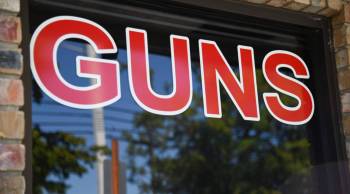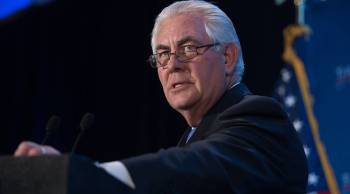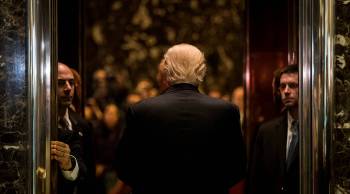Whether to invest or divest?
KAI RYSSDAL: Americans are entering a new round of the argument we have with ourselves when we don’t like something that another country’s doing. To vastly oversimplify, whether we should put our money where our mouth is. Use our investments to apply economic pressure for moral ends.
Iran’s the target of the latest divestment campaign. Some states are trying to get their pension systems to pull investments from companies doing business there. Today the Congress got into the act with its own divestment bill. Marketplace’s Steve Tripoli tells us who’s saying what about divestment this time.
STEVE TRIPOLI: Calpers spokesman Clark McKinley says divestment would cost about $800 million in fees and lost profits. He says there’s nothing the giant fund can do about divestment as things stand now anyway.
CLARK McKINLEY: Despite our concern about terrorism the bottom line is that we have a constitutional mandate, a requirement, to maximize our investment returns.
But Republican Assemblyman Joel Anderson says this isn’t about Calpers’ mandate. He’s sponsoring a California bill that would require divestment.
JOEL ANDERSON: I expect them to use good judgment, and clearly they’ve lacked it on this issue.
Anderson says Calpers should get out of Iran because it’s a bad investment. That’s why he’s forcing the issue. Anderson says Iran’s nuclear program, its threats to Israel and harsh rhetoric toward the U.S. make investing there risky.
ANDERSON: Generally when you make statements like that, you either end up getting bombed, nationalizing assets, or having sanctions come against you. Any one of those three items is a reason alone to divest from Iran.
Ohio’s having the same fight, and eight other states are considering divestment bills.
The federal bill introduced today is sponsored by three Democrats including presidential hopeful Barack Obama. It contains a “safe harbor” provision for pension and mutual fund managers.
That means investors would be barred from suing the managers if getting out of Iranian investments means settling for less than maximum returns.
I’m Steve Tripoli for Marketplace.
There’s a lot happening in the world. Through it all, Marketplace is here for you.
You rely on Marketplace to break down the world’s events and tell you how it affects you in a fact-based, approachable way. We rely on your financial support to keep making that possible.
Your donation today powers the independent journalism that you rely on. For just $5/month, you can help sustain Marketplace so we can keep reporting on the things that matter to you.


















